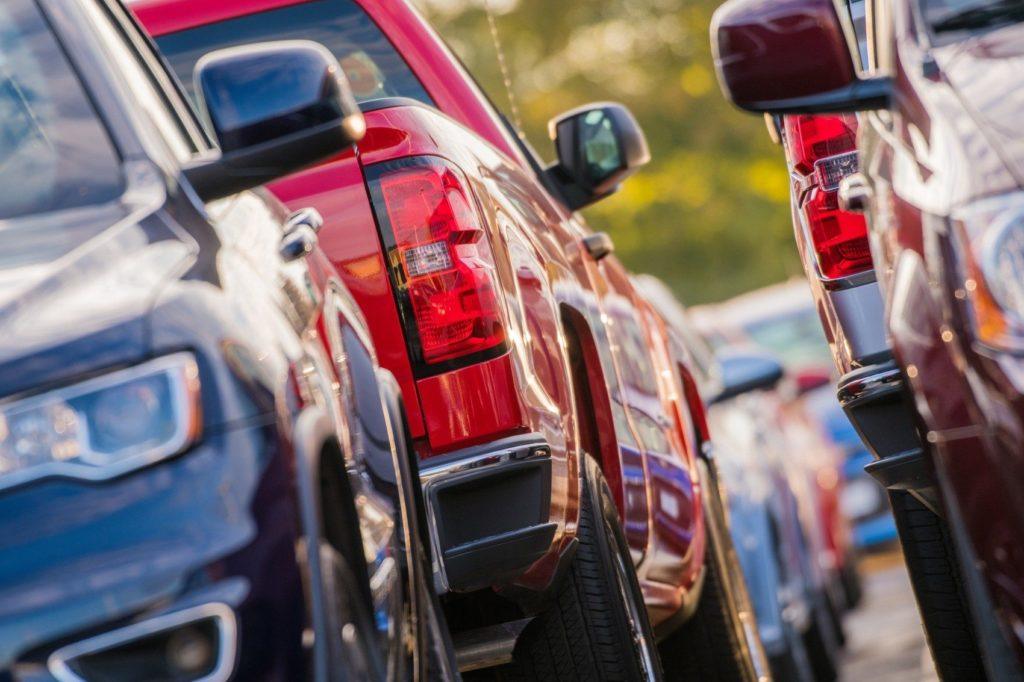Buying a new vehicle is one of the most expensive decisions we can make. According to Cox Automotive, the average payment on a new vehicle exceeded $530 in 2018 or about 10 percent of the median household income. In May 2019, Kelley Blue Book noted the average transaction price for a new vehicle was $37,185, up four percent from May 2018. These figures may not be surprising, as everything from health insurance to smartphones are increasing in price today.
This time of year, we see advertisements about big factory rebates and incentives, and how we can save hundreds, perhaps even thousands on a new car. Yet, is there any truth to this? Do we really get a better deal over the holidays? If you are in the market for a new car, what follows below will help you as you are looking.
Should You Buy a New Car Over The Holidays?
Generally speaking, the closer you get to the end of the year, the better the factory rebates will be on a new vehicle. Automakers and dealerships have a shared incentive in moving out any remaining and existing inventory before January. If you need a new vehicle but are okay to wait “just a little longer,” doing so might work in your favor.
“The months of November and December are historically a popular time to purchase a new vehicle due to available cash and financing incentives,” explained David Sloan, General Manager of the Chicago Auto Show. “Automakers offer some of their best lease deals and financing incentives around the holiday months.”
“Historical evidence from the likes of J.D. Power and Motor Intelligence indicate that holiday months and, in some cases, holiday weeks, see higher incentives on average,” added Kelsey Mays, Senior Consumer Affairs Editor, Cars.com. “Factory-advertised incentives are available to all dealers, so consumers should arm themselves with such information and shop several dealers to secure competitive offers.”
Although a 2021 model of the vehicle you are considering might already be available, the incentives will almost certainly be better on the current 2020 model. If the 2021 vehicle has not undergone a complete redesign (different styling, new features, upgraded engine, etc.), it’s better to save your money and purchase the 2020 model. While the 2020 models are technically still new cars, dealers begin considering them as dated and aging inventory once December gets underway. As with any other consumer retail outlet, dealerships have reason to clear out the old and make way for the new.
“Black Friday deals aren’t just at big box stores,” said Jamie Page Deaton, Executive Editor of U.S. News Best Cars. “Automakers are rolling out some major discounts to power the final sales push toward the end of the year, and shoppers can save big.”
What About Used Vehicles?
Car search engine iSeeCars.com finds November and December are good times to buy a pre-owned vehicle. After analyzing over 40 million used car sales, iSeeCars.com compared months of the year and days of the week to determine whether consumers would find more or fewer deals. In their methodology, iSeeCars.com defines a deal as a savings of five percent or more.
“October through November is the height of new car buying season, which means there is a high volume of trade-ins and off-lease vehicles entering the used car marketplace,” explained Phong Ly, CEO of iSeeCars.com. “Used car deals can be found year-round if consumers are patient and if they do their research. However, deals tend to be more abundant late in the year during the holiday season.”

When Is a Good Time To Buy a Vehicle?
Based on data from iSeeCars.com:
- Black Friday: 33.1% more deals.
- Veterans Day: 32.5% more deals.
- Columbus Day: 30.5% more deals.
- Martin Luther King Day: 29.4% more deals.
- Christmas Eve: 28.7% more deals.
- Month of November: 26.9% more deals.
- Month of December: 23.5% more deals.
- Related: These used vehicles will have the best Black Friday deals.
- Related: A comparison of six popular used car warranty companies.
Corresponding data from iSeeCars.com finds the first day of the month and the end of the month are the best times to buy. Consumers average 8.5 percent better on the first, and only slightly lower (5.6 percent) at the end of the month. “The dealership’s sales month usually ends a few days into the beginning of the next calendar month,” Ly said. “So sales made on the first of the month, for example, get tallied into the previous month’s sales.”
Shopping Locally Has Advantages
Local dealerships may be running their own sales and promotions in addition to what an automaker is advertising. Sloan says dealers are competing for consumer dollars and shoppers could walk away with a win, regardless of what vehicle they are looking for. “Local dealers offer a wide selection of vehicles within a huge price spectrum,” he explained. “This ensures consumers will be able to not only find a vehicle that fits their needs, but also one that fits their budget.”

Advice For Buying a Car
Always: Consider The Whole Deal
One common mistake is getting too preoccupied with either the price of the vehicle or what is offered for the trade-in. The best way, especially when shopping between dealers, is to compare the trade difference. That is the price of the new vehicle with tax, title, license, and fees, minus any applicable rebates and incentives and the value of the trade-in.
“Regardless of the incentive, consumers should fixate on the prospective car’s out-the-door price, including all taxes and fees. There’s a temptation to shop by monthly payment instead of vehicle price, but such amounts can be manipulated considerably by loan terms,” Mays said. “Consumers should secure third-party financing beforehand to ensure the dealer offers competitive terms, then focus negotiations on the out-the-door price.”
Never: Fall In Love
Even if it’s a dream car and everything looks perfect, remain calm and collected. Never show too much excitement and be willing to walk. “There are some deals that might be too good to be true,” Ly said. “And when purchasing something used, you should get the vehicle’s history and have it inspected by a trusted mechanic.”
- Related: Leasing vs. Financing: which one is right for you?
Always: Ask Lots of Questions
At reputable dealerships, the staff members are an immense resource. Some employees are even master certified by the manufacturer, meaning they have successfully completed classes and tests that cover the automaker’s product line, customer service, and general vehicle knowledge.
“New cars are computers on wheels with all kinds of technology to make them safer, cleaner, and perform better,” Sloan said. “Dealership salespeople play an integral role making sure their customers know how to use the technology before they leave.”
Not sure about a particular dealership? Cars.com offers this dealership and salespeople review tool.
Never: Be Afraid To Wait
Ask for the final price in writing after all negotiations are finished and take 24 hours to think it over. At the end of that 24 hours, if for whatever reason, it’s just not the right time don’t feel bad. There will always be another good deal somewhere down the road, and new factory incentives will show up again in the future.
Additional Resources
Best Cars for Young Drivers
Earlier in 2020, Consumer Reports (CR) and the Insurance Institute for Highway Safety (IIHS) worked together to determine the best used cars for teenagers. The full list of cars, and the criteria for how each was selected, can be found here.
Best Ways to Maintain Your Car
After you purchase a new vehicle, routine maintenance will help ensure it runs for a long time to come. This free and comprehensive guide covers the basics and includes a few helpful infographics.
Best Car Insurance Providers
Like routine maintenance, having the right insurance for your new vehicle is also important. In this helpful guide, we provide an in-depth overview of the 10 best car insurance companies.


